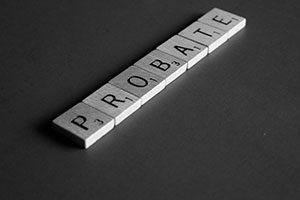
At Harris Solicitors, we understand that dealing with a deceased estate is one of the more difficult challenges in life. From mountains of paperwork to legal jargon and simmering family disputes, they’re the last things you want to deal with when you’re grieving the loss of someone important in your life.
So, let us help you by:
- Interpreting the Will of the deceased in terms of estate laws
- Advising executors and trustees in regard to their duties and rights
- Informing government bodies including Centrelink and Veterans Affairs
- Applying for Probate of the Will in the Supreme Court
- Dealing with intestacy (where there is no Will)
- Applying for Letters of Administration (if the Will is deemed invalid or is absent)
- Identifying estate assets and liabilities
- Obtaining valuations of estate property
- Collecting estate financial assets including superannuation, bank funds, shares, outstanding loans, and insurance payouts
- Selling or transferring estate property including estate auctions
- Paying estate debts including mortgages, funeral costs, and testamentary expenses
- Advising in regard to family and testamentary trusts
- Administering trust funds
- Distributing bequests and inheritances to beneficiaries
- Organising information for estate tax returns
- Family mediation and negotiation
- Contesting wills and defending estate litigation in the Supreme Court
Are you a Will Executor?
Have you been chosen by a family member or friend to be the Executor of their Will? This means that you have been given responsibility to manage their estate according to the terms they’ve outlined in their Will and to protect their assets under the various laws and rules that govern estate administration in Australia.
What are the duties of an Executor?
An executor’s duties may include responsibilities such as:
- Organising the funeral, notices for the paper, flowers
- Locating the Will
- Obtaining a copy of the Death Certificate
- Making sure any property and assets are safe and secure
- Determining the value of assets
- Applying for Probate
- Paying insurance policies, debts and taxes
- Collecting monies belonging to the deceased from financial institutions and insurance companies
- Collecting debts owed to the deceased
- Lodging tax returns for the deceased and for the estate
- Selling properties and assets
- Reporting to beneficiaries
- Distributing the proceeds of the estate to beneficiaries
- Setting up trusts
Being an Executor can be overwhelming, particularly when you are grieving, but rest assured we can assist you or guide you through your duties.
What is Probate?
Probate is recognition of Will’s validity and permission from the Supreme Court for the Executors named in the Will of the deceased to carry out their duties in relation to the Estate. You will likely need a grant of Probate to deal with the assets of an estate, such as selling a property and obtaining bank funds.
What if there is no Will?
This situation is referred to as intestacy and the law determines how assets will be shared out after debts have been paid. If you are the next of kin you can apply for Letters of Administration, which will give you an authority to finalize the estate.
Contact us to find out more or to arrange an appointment with an experienced estate lawyer in Tamworth.
